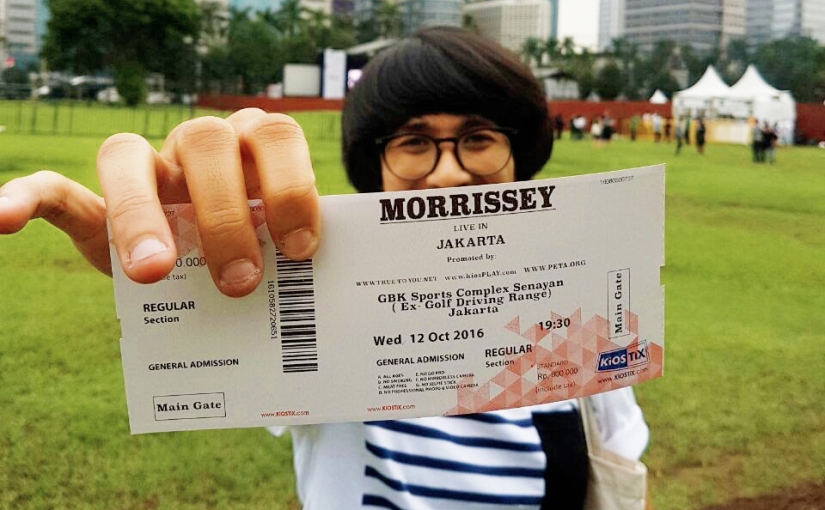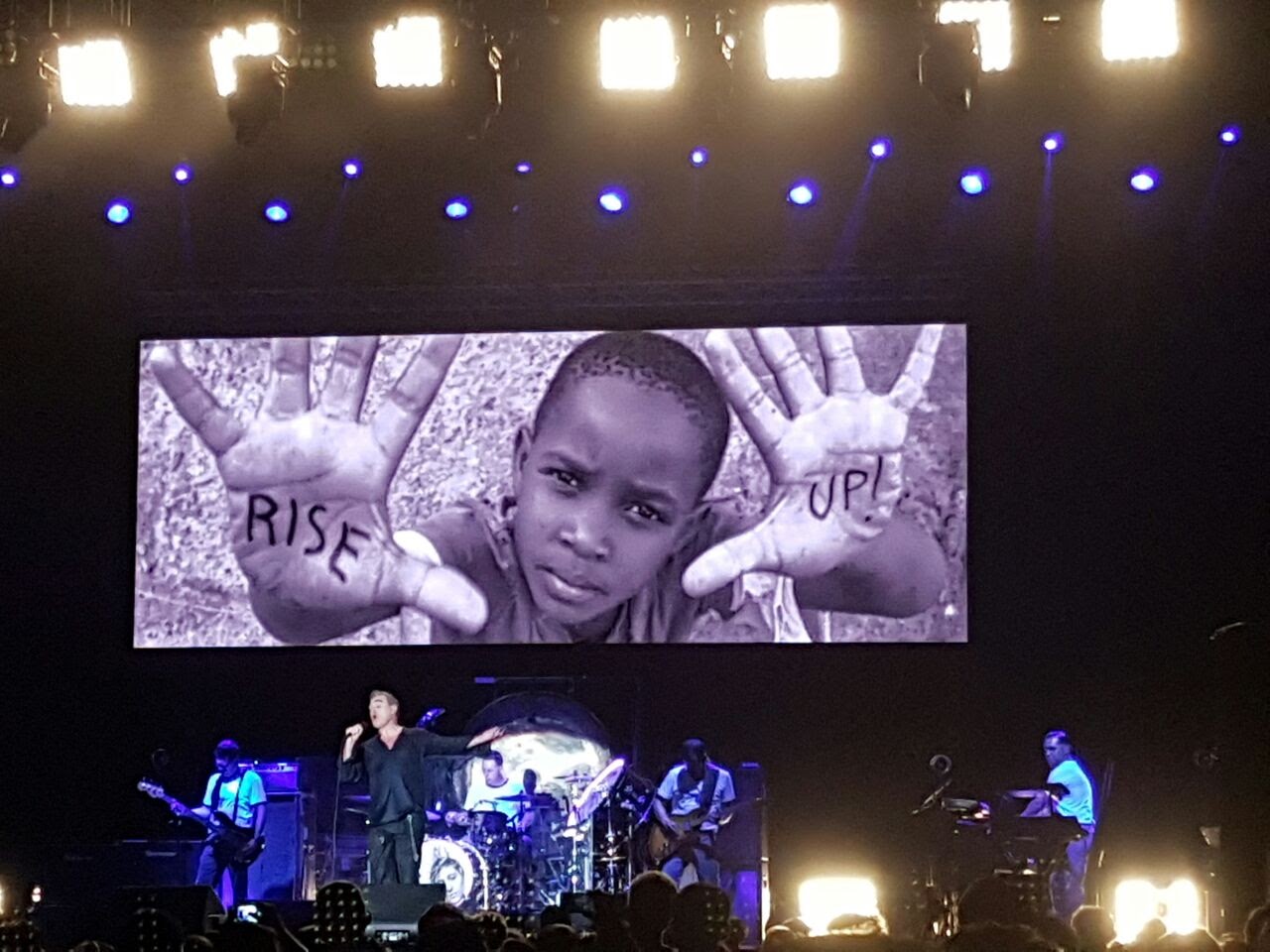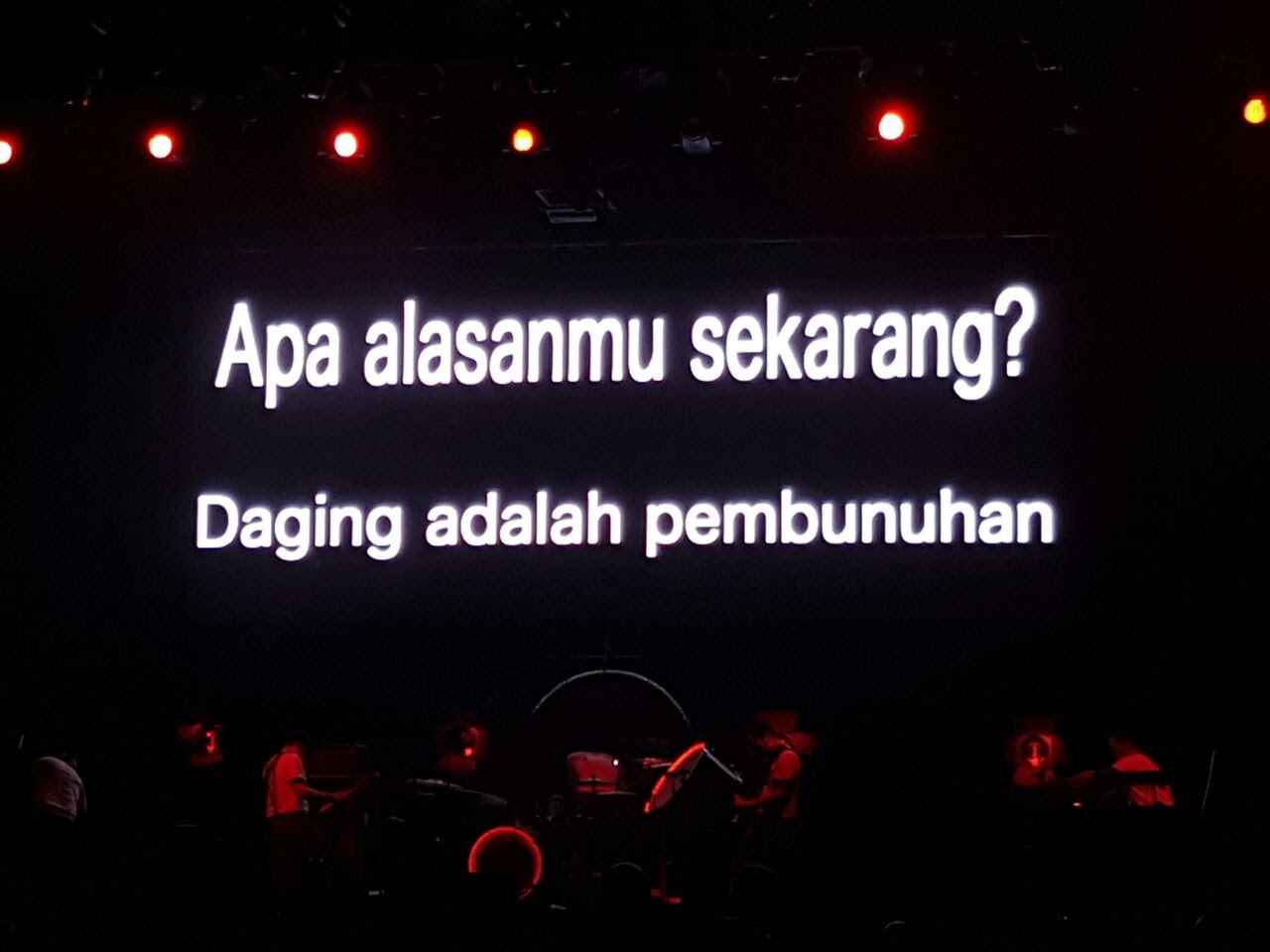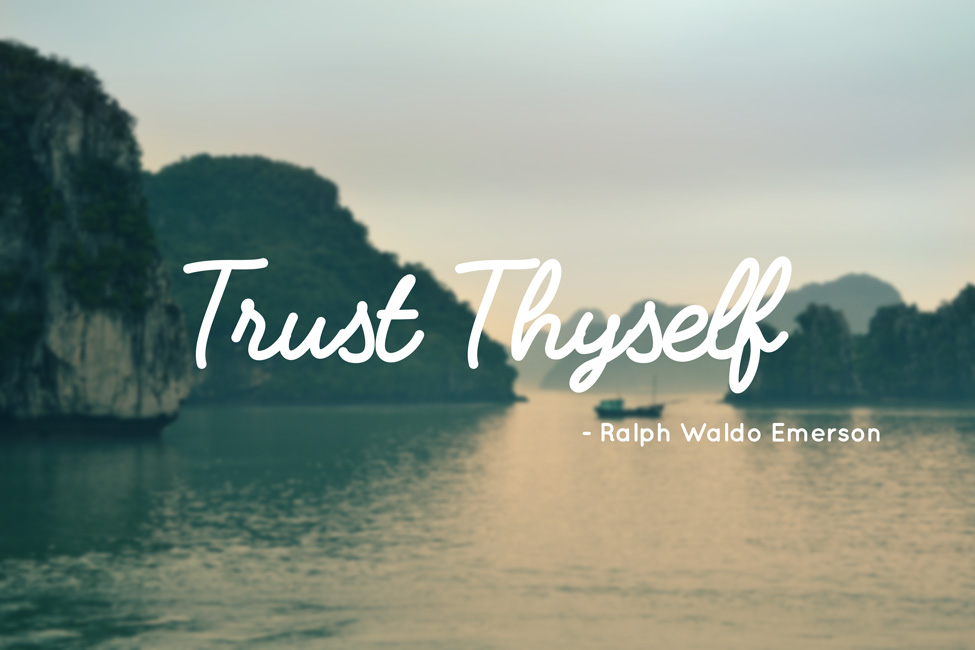So, I read 19 books this year, instead of 25 like I planned to in my 2015 Reading Challenge. I know, I know, I’m such a slob and the featured image is over-dramatic. Ugh. I knew from the start that I’m not going to make it. I should’ve not set it 25 at the first place. But then again, I never thought that I actually can make it to 19. It’s more than last year or any year in my life! So, I guess, hooray?
Anyway, to sum up my not-so-great reading year, and to make up for my shortcoming, here’s a list of five good books I read throughout 2015 (in no particular order).
1. A Field Guide to Getting Lost by Rebecca Solnit

A Field Guide to Getting Lost was published in 2005 and it took a decade for the book to reach me. It found its way to me through Maria Popova’s Brain Pickings. I told my girlfriend that I really wanted the book and being an awesome girlfriend that she is, she took that as a hint and she gave me the book on my 25th birthday! Not a single day spent when I’m not grateful of that.
To be honest, I don’t know where to start to explain the magic that the book has cast on me, not to mention how life-changing it is. The day I finished reading it for the first time, I read it again that very day. And the day I finished the book for the second time, I felt indescribably sad because I wanted to read it all over again for the third time but I knew I had to move on.
Simply put, A Field Guide to Getting Lost offered me the most singular reading experience I’ve ever had. It’s thought-provoking and profoundly moving. The subject of getting lost, of being lost, of letting go, of facing the unknown with bravery, of stepping out of one’s comfort zone isn’t new, but Ms. Solnit put a set of glasses on me that made me see the subjects she discussed in her compelling, beautifully-written essays with new eye-opening perspective.
It’s easy to get lost yourself in the book, to get immersed in the story of captivity, of beautiful person, of friends, of relationship, of adulthood and childhood, of maps, of Nature, of blues, of metamorphosis, of distance, of desire, of Albert Hitchcock’s Vertigo, of so far and so on.
A Field Guide to Getting Lost gave me a new meaning about falling in love with a book, so much that it’s literally always in my bag, with me anywhere I go. It’s the book that puts me to sleep on many sleepless nights, not because it’s boring but rather comforting, like being in a cradle of your mother’s arms. No, seriously, this book is like a bible to me, the one that I will always turn to again and again.
Favorite quote:
To lose yourself: a voluptuous surrender, lost in your arms, lost to the world, utterly immersed in what is present so that its surrounding fade away. In Benjamin’s terms, to be lost is to be fully present, and to be fully present is to be capable of being in uncertainty and mystery. And one does not get lost but loses oneself, with the implication that it is conscious choice, a chosen surrender, a psychic state achievable through geography.
2. Wonder by R. J. Palacio

I think it is necessary for grownups to get into children’s books sometimes because they are full of wisdom and some of them tell it in a straight-forward, non-patronizing way. And if you were to ask me what’s my favorite children’s book, then Wonder would be it.
Wonder is a story about a 11-year-old boy named August “Auggie” Pullman. Auggie always feels that he’s nothing but an ordinary boy. However, his unfortunate physical condition makes him anything but. Auggie’s adventure begins when his parents send him to a public school for the first time in his life.
In the book, Auggie becomes the center character around which other stories revolve. Yes, other characters, like Auggie’s sister Pia and Auggie’s friend Jack, also get to tell their own stories including how they see Auggie. And this is where the book stands out.
R. J Palacio is capable to write each narrative thread with distinctive voice, even style. I like how Palacio gives the reader access to the story of many different characters and thus gives the readers the understanding as to why this particular character did what they did. This also allows the readers to gain more impression about Auggie.
Wrapped in a heart-warming story, all characters (except Julian and his mom, that bitch) conspire to form one important message that the book tries to pass on to readers:
Kinder than is necessary. Because it’s not enough to be kind. One should be kinder than needed.
3. The Little Prince by Antoine de Saint-Exupéry

And if you were to ask me what’s my second favorite children’s book, it’s The Little Prince, though I wouldn’t so much call it children’s book. It’s a children’s book written for grownups and it will surely give grownups like you and me an epic proverbial slap across our faces.
The Little Prince forces you to remember what it’s like being a child and reminds you that grownups and being one generally suck: how they prefer “golf, politics and neckties” to “jungles or stars,” and how “they’re no longer interested in anything but numbers.”
I’m not free from blame though. I’m one of the grownups described in the book. It’s true because I feel disappointed in myself for not having completed my reading goal. I’m disappointed because I could only read 19 books out of 25. See, that’s how awful grownups can be: they focus so much on numbers instead on things that matter.
But getting old and growing up are some of the things in life that are inevitable, as what happened to the narrator and the rest of us. But we must not forget how wonderful it is being a child and that the things that matter are seldom visible.
Favorite quote:
It is only with the heart that one can see rightly; what is essential is invisible to the eye.
4. Love and Mr. Lewisham by H. G. Wells

The last time I read a classic (Emma), I almost died of excruciating boredom. Then, I decided that text from days of yore was simply not my cup of tea. That’s why it came quite a surprise to me that I actually enjoyed reading Love and Mr. Lewisham.
Now, the book is not actually from Jane Austen era but it is a tough read (it’s published in 1899, for the sake of god) and it took a while for me to finish. But I can say that it’s really worth it!
I’ve never read romance so realistic as this, despite its historical and cultural background. By romance, I don’t mean touchy-feely, hearts-and-flower shit like Nicholas Spark novels. The kind of romance portrayed in Love and Mr Lewisham is the one that destroys and ruins you, one that contradicts your principles, one that is tragic, one that doesn’t have happy ending, one that is full of struggle. Because, as someone in Medium put it, “when life enters the picture — bills and payments and jobs and stress and divided attentions — that’s when love starts to feel less like a romance and more like a battle.” Well, Wells understands this very well. He also touches the subjects of human nature, politics, and spiritualism.
Favorite quote:
What is man? Lust and greed tempered by fear and irrational vanity.
5. The Hours by Michael Cunningham
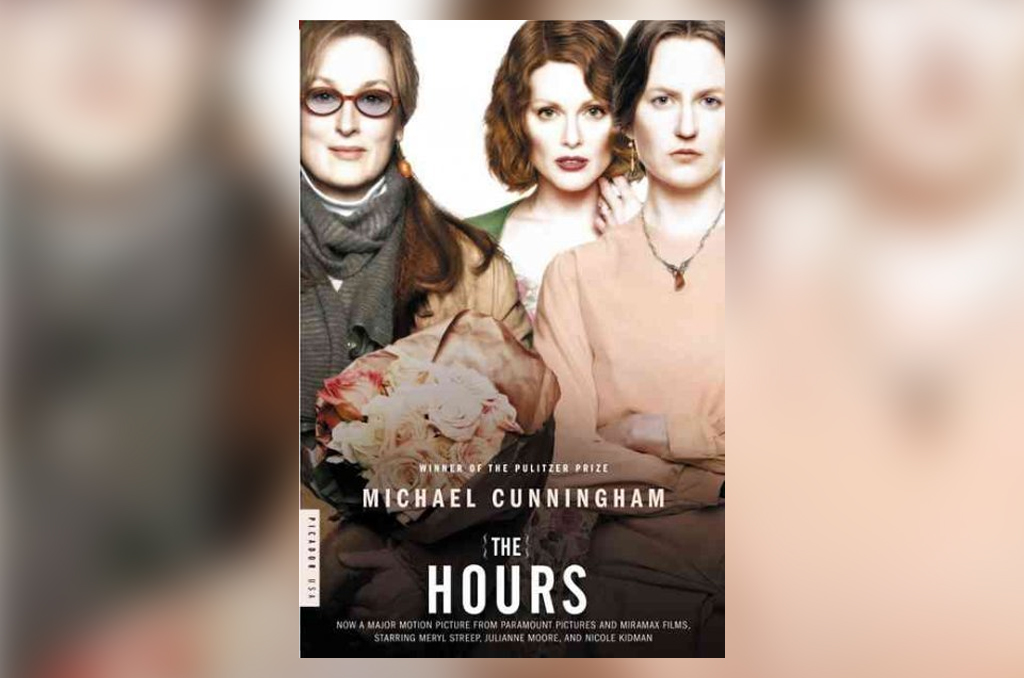
Everyone has at least that one book whose story resonates the most with them, that they can easily relate to. This kind of book is usually the one that reminds them that they are not actually alone. The Hours does that to me.
The Hours is not an easy read. I had to read the book five times before I penned this. Too much $10 words I had to consistently look up to dictionaries, moving back and forth between Merriam-Webster and Google Translate. But it’s worth it, I’m telling you.
I watched the movie version first before reading the book (Meryl Streep, Julianne Moore, and Nicole Kidman deliver stunning performances). Unlike the movie, the novel gives me immense access to the inner lives of the three women; what and how they feel in given moments. You have no idea what happened inside someone’s head in a seemingly ordinary day of their lives.
It’s amazing to know that you share that indescribable inner turbulence you feel everyday with somebody else. This somebody else is fictional, I know, but someone who wrote this story (in this case, Cunningham) is real. He knows that this kind of feeling exists and he successfully transcribed it for others who might feel the same way.
Favorite quote:
Think how wonderful it might be to no longer matter. Think how wonderful it might be to no longer worry, or struggle, or fail. What if that moment at dinner—that equipoise, that small perfection—were enough? What if you decided to want no more?
Bonus: 14,000 things to be happy about by Barbara Ann Kipfer

I didn’t actually finish the book. I’m still reading it though, skipping through and opening random pages. I guess the book is never meant to be read linearly at the first place and that is, to me, its charm. The joy is in the moment you bump into some particular things and you just happily smile because you’re in an agreement.
No plot, no characters, no setting, not even structure. Just a very long list of little things (some of them pretty big) that make life worth living.
It’s true that some things can only be acquired by financial wealth, but most of the things that can bring you joy are actually free. That’s the message the book’s trying to deliver.
14,000 things to be happy about is indeed one of the things to be happy about. Also thank you, Yana and Maul, for getting me this wonderful book. I’ve added our friendship to my personal list of things to be happy about.
To wrap this listicle up, I wish you a happy new year! Have a good one people!






















